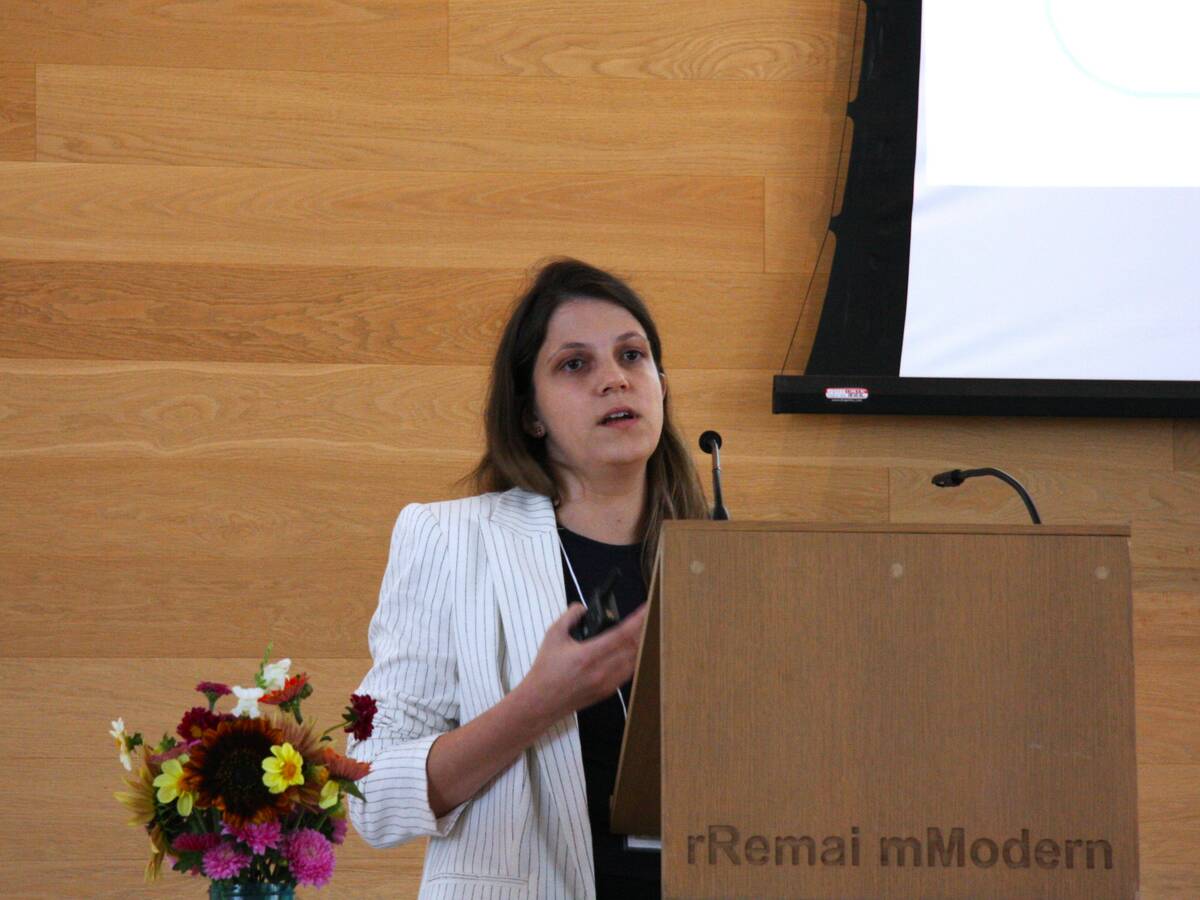Farmers should be happy that Maple Leaf Foods is re-engineering its meat processing system, hog marketers and analysts say.
Even though it is closing a number of plants — including a bacon plant in North Battleford, Sask. — its choice to build Winnipeg into a world-competitive plant and its modernization of the Saskatoon operation shows there will be demand for prairie pigs in Brandon for years to come, they say.
“It looks like Maple Leaf is committed to Manitoba for the long term,” said Hams Marketing general manager Perry Mohr.
Read Also

Fusarium head blight mycotoxin detector in the works
A PhD student at the University of Saskatchewan has been working on developing a method of detecting fusarium damaged kernels to ease the struggles of producers, agronomists and industry.
That view is shared by Brent Moen, the chair of Alberta’s Western Hog Exchange.
“The fact that they’re building a world scale plant and consolidating operations into that plant is good for producers,” said Moen, whose organization sells most of its pigs to Olymel in Red Deer.
“It has to be good for our industry. Whether it is Maple Leaf or Olymel or anyone who further processes pork, better plants can create better demand.”
Maple Leaf’s massive restructuring has several components:
• Shutting plants from Moncton, N.B. to Coquitlam, B.C.
• Closing the North Battleford bacon plant, cutting 332 jobs, by the end of 2013.
• Shutting the Winnipeg Hot Rod meat stick plant in Winnipeg, losing 27 employees, in late 2014.
• Investing $420 million in two Ontario plants making processed pork and chicken products, creating 757 jobs.
• Expanding the Winnipeg bacon, ham and sausage production plant by $85 million and 334 employees.
• Expanding the Saskatoon wiener, sausage and lunch meat plant by $45 million, but no additional employees.
• Total cost $550 million.
Maple Leaf Foods chief executive officer and its biggest shareholder, Michael McCain, said his company needed to scrap old plants and create new, world class ones to compete with plants operating in the U.S.
That thinking makes sense to meat market analyst Kevin Grier of the George Morris Centre in Guelph, Ont. A low Canadian dollar allowed Canadian processors to put off investing in state of the art technology for years, but that’s no longer possible.
“The processing industry has been behind and they’ve gotten away with it because they could, but more and more product is coming in from the United States (to Canada), and so to compete they have to operate at scale,” said Grier.
Canadian packers have long complained about high wages making them less competitive than U.S. packers, but processors have also suffered from operating plants that were built decades ago for smaller production systems. There are only a handful of slaughter plants in Canada, but many processing plants.
Mohr said it makes sense for Maple Leaf to consolidate its operations and improve technology at its plants.
“They will probably use as much robotics as they possibly can to minimize costs,” he said.
In theory, Maple Leaf should be able to pay farmers more for their pigs at Brandon if they can make more money from the sales of pork products made in Winnipeg and Saskatoon and Brampton and Kitchener, Ont.
“If this plant does everything that Maple Leaf says it will do, it should free up some money to flow back to producers,” said Mohr.
“At the end of the day, it’s useless unless there are pigs to flow through that facility.”
Manitoba Pork Council chair Karl Kynoch said farmers and pork processors have suffered for years, so the announcement that Winnipeg’s plant would be expanded and Saskatoon’s modernized put a smile on his face.
“Finally, a good hog day,” said Kynoch.
“To see Maple Leaf invest $85 million in the Lagimodiere (Road) plant, and the fact that we have the newest processing plant in Brandon, means Maple Leaf is saying we’re here for the long term.”
Grier said Maple Leaf’s world scale plant in Winnipeg will match nicely its world scale slaughter plant in Brandon.
Moen said farmers are always worried that processors will abandon the industry if they can’t make money, so it is a relief to see long-term capital invested in pork processing.
“It shows they are definitely committed to their business,” said Moen.
“They should be applauded for that.”















